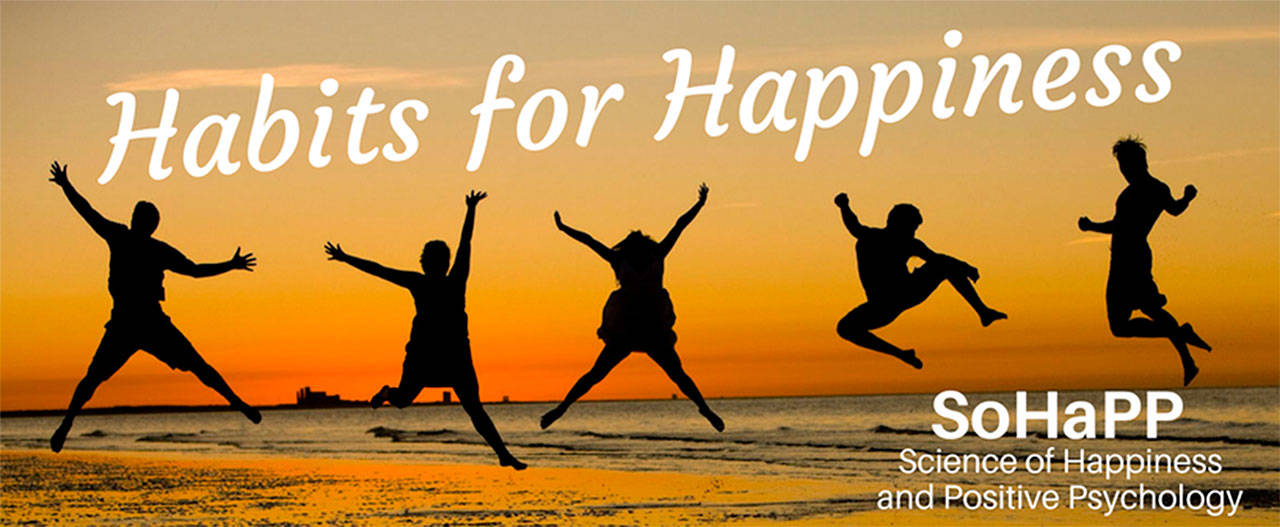Children smile WAY more than adults, but getting them to smile more is still a good thing. Imagine the extra positivity created by a child planning their own fun event. At the dinner table or when the sun sets, can you ask a younger person what was the best part of their day?
Talking about brain plasticity isn’t needed to bring health to a child, but working on it does. Just adding smiles, planned fun and enjoyable thoughts does it – and that is the message of being more Positive from Habits for Happiness. While the subconscious is hard to discuss, it is easy to make those connections dealing with positivity stronger, and it makes us healthier and happier, even for a child.
Neuroscience shows mental well-being is improved with the cultivation of five habits, being more Positive, Kind, Mindful, Active and Grateful; our Habits for Happiness. Our initiative is called SoHaPP, standing for Science of Happiness and Positive Psychology.
For January, have your children think of being more Positive. Repeated behavior strengthens the mind’s connections, and repeating for thirty days in a row really makes a huge difference for our subconscious. The habits become more automatic, and our health improves. Mental well-being should be for everyone!
Building mental wellness is easy. Finding a reason to smile can come in an instant, if one allows for it. Searching for those opportunities keeps it in the forefront of the brain. The facial features a smile creates send messages of caring, warmth and gratitude. The positive mirror neurons returning that energy to the one smiling begins the bouncing back and forth, and everyone is a winner. Our community even becomes the healthier for it. For January remind children to have an extra smile, maybe even three, that day, and ask whose day they brightened. Model this behavior, and you’ll benefit too!
Planning for a vacation, especially if done far enough out, brings real joy to a person. That anticipation reinforces positive thoughts, again creating wellness. Even if just for a small event, let children benefit from “planning” something fun, so both the anticipation and the actual experience of the event strengthens positivity. This intentional focus increases the reward for your child, and it is as simple as thinking ahead.
Just like with anticipation, reflecting on something good builds overall wellness. Reflection is an acquired skill, and important to develop. Asking a child, “What was the best part of their day?” reinforces good times and positive emotions. A child’s life can sometimes be too much of a whirlwind, and slowing down for reflection is always welcome. One can build wellness for a child, just by asking a simple question. It can be a learning experience for the adult as well – finding out what really matters. Try it for thirty days in a row, and you might just begin a tradition lasting a lifetime.
One can change negative thinking into positive thinking, with just a bit of effort. A personality trait of optimism affects many areas of health, from effective stress management to better coping skills. Help children take daily small steps that intensify with practice and compound over time, achieving great rewards. More information is at our Facebook page and www.SoHaPP.org.


